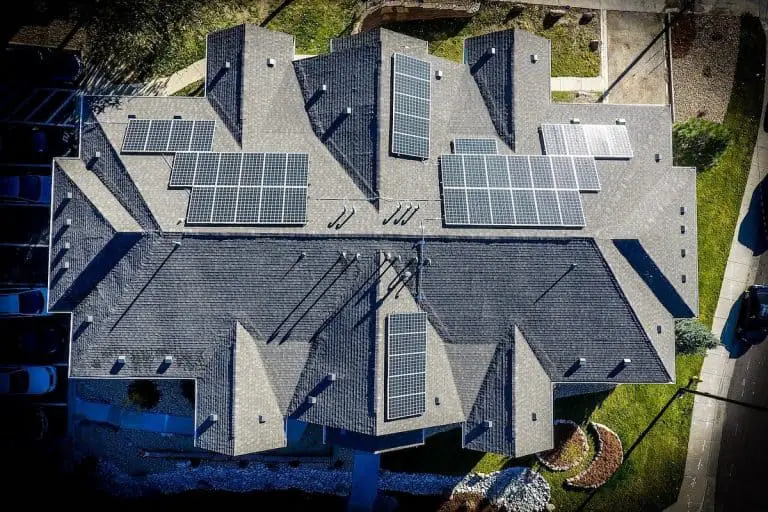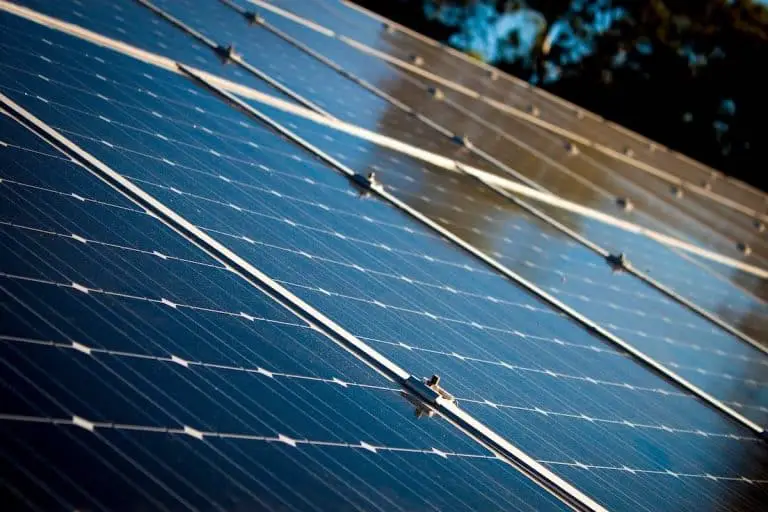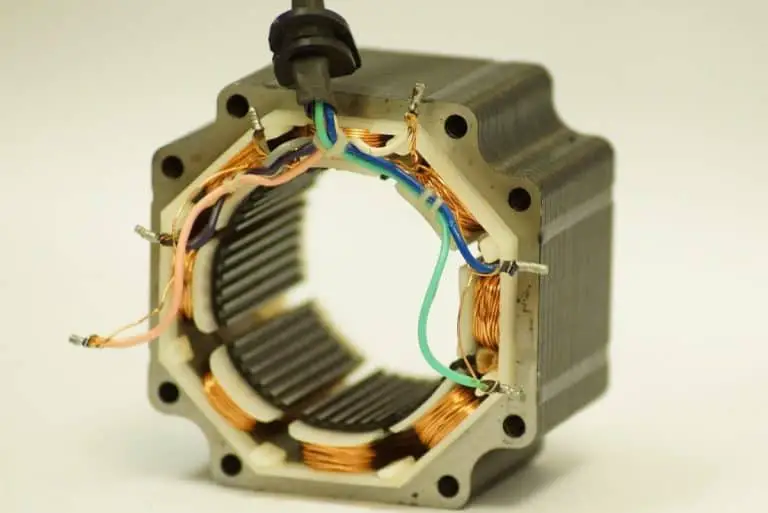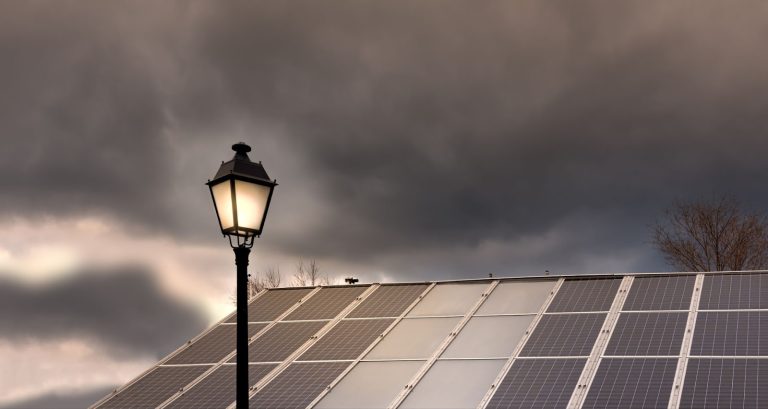Solar Generator Vs. Battery Bank (A Complete Comparison)
A solar generator is a compact machine that includes all the devices to efficiently absorb sun, collect electricity, dispense it when necessary, and generally are easy to carry around. Solar batteries require additional devices to work correctly with the panels and appliances.
Is there a difference between a solar generator and a solar battery? The two things have similar functions, and it is easy to confuse them; however, there clear and substantial differences between them.
This article covers all there is to know about the difference between a solar generator and a solar battery bank.
What Is A Solar Generator?
In general, a generator is a device that can convert mechanical energy into electricity. The electricity is forwarded externally through a system of circuits so that it can power appliances and other electrical devices.
Generally, a generator can gather energy from various sources such as water turbines, wind, gas, fuel, steam, and more. In the case of a solar generator, the mechanical energy used is the sun. Typically, solar panels harvest the sun.
In other words, a generator can transform energy into another type of energy. When you hear the words “solar generator,” you know it refers to a device built to use the sun to create electricity.
Most commonly, one refers to a solar generator as a complete package that includes batteries, built-in inverters, and other gadgets to make it possible to get electricity from the sun. In contrast, solar battery banks require additional components and set up actions to do their job.
What Are The Pros And Cons Of A Solar Generator?
Solar generators are efficient to use and are very easy to carry around in outdoor settings. Therefore, outdoor enthusiasts are more likely to get a solar generator for their trips. However, there are more positive aspects to solar generators and some negative ones.
Solar Generators Pros
The main advantages of solar generators are:
- No fuel necessary to operate
- Require low-maintenance
- Quiet operation
- Eco-friendly
- High portability
Advantages Explained
Solar generators do not require you to buy fuel constantly. Once you purchase the generator, there are no additional costs to operate them, just exposure to the sun.
For a more extended period, the minimal operation costs make it possible for the buyer to recoup the original investment and further economize on running expenses. In addition, since they are connected with solar panels, the maintenance is minimal.
The other advantage is the use of clean and renewable energy. The environmental impact is really low since a solar generator produces no pollutants compared to other energy sources.
Another critical factor is the quiet operation. Generators running with fuel are pretty noisy, while those running on solar energy are silent since they do not have mechanical or moving parts inside. It is why they require less maintenance since moving parts are likely to break more often.
Solar Generators Disadvantages
The main disadvantages of solar generators are:
- Initial substantial investment
- Charging might be slow
- Often provide limited power
Disadvantages Explained
Those who want to take advantage of solar generators must be prepared to invest considerable money. Sometimes, you are looking at investing up to twice the money you would spend for a traditional generator.
Solar generators depend on the sun, and when there is no sun or the day is cloudy, generators will not manage to store enough electricity to power your devices. But even on a sunny day, it can take some time for the batteries to recharge.
Generally, if a generator is connected with a 100-watt panel, recharging the batteries can take 9 to 12 hours. You can resolve this situation with a more powerful solar panel setup.
Solar generators can hardly power an entire household but can power small devices and medium-sized appliances depending on the battery size.
What Are The Components Of A Solar Generator?
A solar generator has a lot of components included in the main body or built-in, which you do not have to buy separately. But they require solar panels to be gotten independently.
Necessary Components Of A Solar Generator
- Solar panels
- Charge controller
- Battery
- Inverter
Solar panels contain crystal and other conductive materials, which can generate a flow of electrons and thus create electricity. Solar panels come in various sizes, efficiency levels, and energy output.
Based on what your solar generator can hold, you should decide how many solar panels you need to charge the batteries in a reasonable time.
A charge controller is built into the solar generator and controls the energy flow from the solar panel to the battery.
The battery can overcharge or get damaged if the flow is not regulated. So an inverter is also built-in and converts electricity from DC (the type of electricity generated by the solar panels) into AC so that the energy can power the devices that do not run on DC.
Finally, a solar generator has a battery charged through the solar panels.
What Is A Solar Battery Bank?
Solar battery banks are connected to a solar panel system responsible for harvesting the sun and recharging the batteries. A solar battery bank can be installed in a home using solar panels placed on the roof or in an RVs with solar panels mounted on top.
Solar batteries must be paired with other devices to work correctly, such as inverters, charger control devices, and a monitoring system that tracks the produced electricity.
Solar panels harvest the sun and transform the photons into electricity. Then, through a system of wires and an inverter, the electricity flows into the battery. The inverter makes sure the direct current (DC) becomes alternating current (AC), so you can use it to power appliances and other devices.
The quantity of energy stored depends on the battery size and capacity. During the night, when it lacks sunlight, the energy stored in the battery bank is used to power the appliances.
What Are The Pros And Cons Of A Solar Battery Bank?
Solar battery banks are usually for a more stable setup, such as in a home as part of a solar system or RV. There are also portable solar batteries that are smaller and easy to carry.
Solar battery banks are a good solution for storing the extra energy produced by solar panels or charging in case of necessities such as blackouts or lack of sun.
Solar batteries have a lot of advantages but also have some negative aspects.
Solar Battery Banks Pros
The main advantages of solar batteries banks are:
- They are cheaper than solar generators
- Saving on electrical costs
- Very useful during power outages
- Eco-friendly
Advantages Explained
Solar battery banks are instrumental in lowering electric bills and saving on running costs throughout the year. They are also a perfect solution to outdoor power appliances using only the sun, such as in an RV set up or other outdoor environments.
In case of power outages, battery banks become helpful since you can continue using electricity independently from the grid. For example, a household can get electricity from battery banks at night and use solar energy produced by the solar panels during the day.
With such a setup, a household can become completely independent from the grid, providing the battery capacity is large enough. This setup can considerably reduce the electrical bills. Like solar generators, battery banks do not produce CO2 emissions and utilize a clean energy source.
Solar battery banks’ disadvantages
The main disadvantages of solar battery banks are:
- Not suited to be portable
- Need additional devices to connect with the solar panel system
- Require a considerable initial investment
Disadvantages Explained
While you can economize a lot of money for a more extended period using solar batteries to be independent of the grid, initially, it is necessary to invest some money to get everything correctly set up.
A considerable initial investment is necessary for the battery bank. It is helpful for all the wiring and devices essential to connect the panels. It will be handy for the house’s electrical system or appliances to connect to the battery bank.
In addition, batteries require regular maintenance. After a specific time, batteries lose efficiency, and there are best practices to follow to ensure they maintain a high-efficiency level.
What Is The Difference Between A Solar Generator And A Solar Battery Bank?
While solar generators and solar battery banks perform similar functions, there are a few differences. The main ones are the following:
- Solar generators are an “all-in-one system” ready to use
- Battery banks require additional wiring and setup work
- Solar generators are better portable devices than battery banks
- Solar generators do not hold as much power as battery banks
- Solar generators are more expensive than batteries
“All-In-One System”
Solar generators have everything included to connect with other devices and solar panels. At the same time, batteries need additional wirings, such as a charge controller, inverter, and more, depending on the setup.
In addition, batteries require external components to work. Because solar generators have all the necessary features to connect with other devices built-in, they are more expensive than batteries.
However, solar generators have built-in batteries and are provided with a Battery Management System (BMS), ensuring the batteries operate efficiently.
But solar battery banks do not necessarily have this feature; if you want it, you must get it added separately.
Are Solar Generators Worth The Money?
Although solar generators can be expensive, they are beneficial for charging small appliances and other small devices. In addition, they are easy to carry, so they are perfect for outdoor use.
Those who want a solar set up for frequent trips outside or enjoy a power backup solution can benefit from a solar generator, and it would be worth the money invested.
They are best suited for powering devices needed on an RV trip or a boat adventure. However, if you need to power the entire house, solar generators are not worth the investment; you would need another solution.
Can A Solar Generator Power A House?
In general, a solar generator cannot power an entire house if a lot of appliances are running at the same time. However, a solar generator can power the home if you are only using the necessary appliances and devices.
If you want to use a solar generator to power the house, you should not run an AC unit or other bigger energy-draining appliances. Before getting a solar generator, you could try determining your energy consumption and select the generator that could cover your energy consumption.
It is better to use solar generators for outdoor adventures due to their flexibility and portability. Still, if you want to use it to power the household, you can safely use it to power the following appliances or devices:
- Radio
- Refrigerator
- TV
- Lights
- Tablet and computers
- Mobile phones
Avoid turning on the stoves, AC, Heaters, and similar.
Which Is Better, A Solar Generators Or A Solar Battery Bank?
Solar generators are very flexible and, simultaneously, built with all the necessary equipment to work without an extensive setup. However, solar battery banks require a proper set and can hold more power.
Depending on your needs, you can decide if it is better to use a solar generator or a solar battery bank.
But, looking at the characteristics of each option, it would be better to use a solar generator for outdoor activities and travel and use battery banks with a stable solar set up system in the house.
A solar generator is also a good solution as an emergency solution in case of power outages and for those living in areas where blackouts are common.
In addition, a battery bank is essential for those going off the grid entirely and relying on solar energy.
Which Among The Solar Generator Or A Solar Battery Bank Has A Greater Lifespan?
Solar generators and solar battery banks use batteries recharged by the solar panels. You can recharge each battery for a certain number of cycles indicated by the manufacturer.
Depending on what product you buy, you can be expected it to last for a certain number of rechargers or cycles. Generally, a solar battery can last between 5-15 years or up to 2000 cycles. The battery’s lifespan can be prolonged by proper maintenance, reading the manufacturer’s manual, and following all the recommendations.
How Long Can Solar Generators Last?
Solar generators can last up to 25 years or more. However, you might have to replace the battery earlier. Before deciding to buy any product, you should look at the warranties.
Typically, you can expect a warranty to cover several years of operation; however, some manufacturers will provide shorter warranties.
Producers providing more extended warranties trust that their products are good. In this case also that the customer can have more confidence in them.
Is Solar Battery Storage Worth It?
Solar battery storage is worth it when looking at the long-term economy, but in some situations, it is also worth it because of necessity, where there is no power.
Independence from the grid is one main reason people turn to solar.
Whatever happens to the electricity provider, the household is entirely independent. Others want to lower the running cost and benefit from low electric bills for many years.
Although the initial investment for the solar setup is high, solar panels can last up to 20 years before they need replacement.
Similarly, the batteries last for a long time, allowing the homeowner to recoup the money invested within a few years and gain more than what was invested.
Solar battery storage and setup are only possible for those owning a home, knowing they will not move anytime soon.
It is also worth it for those living in an area where the grid cannot cover it. Ultimately, going solar is also a lifestyle, and it is worth it because it helps safeguard the environment.
Frequently Asked Questions
What Is The Best Backup Source For A Power Outage?
The best backup sources for power outages are solar generators and battery banks powered by solar panels. Generators, in general, even if not powered by a solar system, are also a reliable way to power appliances.
Portable solar batteries are also an excellent solution to power important devices in an emergency.
Is generator cheaper than solar?
Generators are cheaper since they cost less than a solar system setup. However, generators powered by fuel require you to spend money each time you need to run them.
In addition, you have to face additional maintenance and repair since those generators have many mechanical parts.
Do Solar Generators Make Noise?
Solar generators do not make noises, unlike traditional generators operating with fuel. Solar generators do not have a motor running in them but operate with a battery connected to a solar panel, which is generally quiet.
Those elements do not produce loud or humming noises when turned on.







